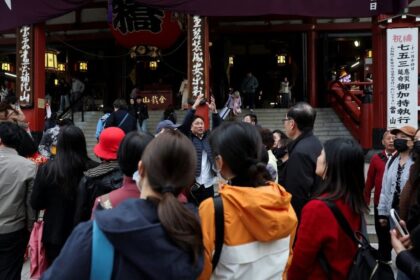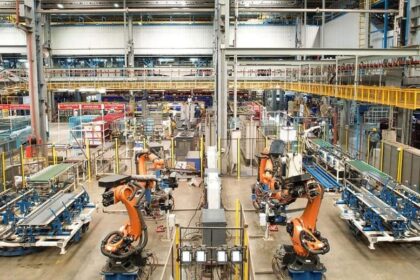A strategic bet on Hong Kong growth
Deloitte China will add about 1,000 new roles in Hong Kong and invest HKD500 million (around USD64 million) over the next four years, a move designed to accelerate the city’s shift into a broader talent and innovation hub. The program, called Hong Kong LEAP, concentrates on three engines inside the firm’s own business, fintech, capital markets operations, and artificial intelligence. Deloitte introduced the plan alongside its 2025 Hong Kong Economic Outlook white paper, which sets out four citywide growth engines, driving financial innovation, helping mainland enterprises expand globally, deepening regional innovation and technology collaboration, and speeding the green transition.
- A strategic bet on Hong Kong growth
- Inside the Hong Kong LEAP strategy
- Jobs that are coming and who will fill them
- Capital market momentum lifts confidence
- Greater Bay Area and regional integration
- Policy ideas Deloitte wants Hong Kong to adopt
- The talent race and why it matters
- AI’s reach beyond finance
- Risks to watch
- Key Points
The timing carries weight for Hong Kong. The city has worked to regain momentum after a period of subdued growth and a shrinking workforce, while seeking to diversify beyond finance and property. A turn in capital markets has helped. Multiple reports point to stronger fundraising and higher average daily turnover this year, and a rebound in mega offerings that lifted Hong Kong to the top of global IPO proceeds in the first three quarters of 2025. Policy support, including closer cooperation with mainland regulators and refinements to Hong Kong’s listing regime, has added to brighter market sentiment.
LEAP is a multi year commitment tied to specific changes Deloitte wants to see in Hong Kong’s economy and in its own client service capabilities. The new roles will focus on financial services innovation, capital market advisory, and AI development. The firm also sketches a wider agenda for policymakers, from expanding investment products to digital assets and renminbi counters to advancing the city’s green finance framework. The stated aim is to help position Hong Kong as the preferred launch pad for companies from the Chinese mainland and a catalyst for Asia Pacific growth.
Dora Liu, chief executive officer of Deloitte China, framed the initiative within the city’s cross border role. She underlined how Hong Kong sits between national strategic priorities and international capital flows, with integration across the Greater Bay Area continuing to deepen.
Dora Liu, CEO of Deloitte China, said: “Hong Kong stands at the convergence of global geopolitical shifts, national strategic priorities, and deeper integration within the Greater Bay Area, positioning the city as a connector between Mainland China and global markets.”
Deloitte’s white paper argues that a stronger mix of finance, technology, and climate aligned industries can help the city sustain higher quality growth. The LEAP program channels investment into teams and tools that match those pillars, with an emphasis on digital finance, listing readiness and post listing support, and applied AI for both financial and non financial sectors.
Inside the Hong Kong LEAP strategy
The firm’s strategy reflects four areas it believes will shape Hong Kong’s next phase of development. These include capital markets with deeper product diversity, faster adoption of AI across industries, tighter regional technology collaboration with the Greater Bay Area, and a credible transition finance framework to support decarbonization. Each area comes with a mix of hiring, technology investment, and policy suggestions.
Fintech and digital finance
Deloitte urges a broader set of investment options to attract issuers and global investors. Proposals include expanding digital asset eligibility within existing investment schemes, widening the investor base for Southbound Stock Connect, and exploring measures that help renminbi counters build liquidity. The firm also supports steps that enlarge the exchange traded fund and derivatives menu and deepen links with Southeast Asian markets through cross listings. These ideas align with a wider push to make Hong Kong the preferred place for treasury centers, with a mature financial system, a simple tax structure, and efficient settlement infrastructure that appeal to both mainland and international companies.
Capital markets and listings
Hong Kong has rebuilt momentum in equity fundraising with a slate of mega listings this year. Deloitte expects the city to continue competing for the top spot in global IPO proceeds, supported by policy refinements at HKEX and the Securities and Futures Commission. The firm backs measures to attract more new economy issuers, for example relaxing certain rules for weighted voting rights companies, easing secondary listing requirements, and widening confidential applications under the Technology Enterprises Channel. Deloitte also floats the idea of an Overseas Companies Listing Channel, which would give credible foreign issuers another route into Hong Kong’s market.
Artificial intelligence and data
LEAP puts AI at the center of Deloitte’s hiring and investment. In finance, AI can power fraud detection, algorithmic risk assessment, client onboarding, and scenario modeling. Beyond finance, AI is taking hold in health, logistics, engineering, and public services. Local initiatives point to the opportunity. A recent preventive health event in Hong Kong highlighted AI tools for retinal scans and posture assessments, and survey data showed strong public interest in digital wellness and personalized coaching. Deloitte also calls for government departments to scale up effective AI solutions and to boost AI literacy among civil servants to speed deployment and reduce implementation risk.
Green transition and transition finance
The white paper calls for a clear transition finance framework, so carbon intensive companies can raise credible funding for decarbonization. Transition finance differs from pure green finance. It helps heavy emitters move toward cleaner operations with measurable steps and verification. Asia faces a large funding shortfall for the low carbon shift by 2030, and Hong Kong has the chance to define high quality standards for instruments like transition bonds and sustainability linked loans. A robust framework would help issuers prove use of proceeds and outcomes, and help investors compare progress across sectors.
Jobs that are coming and who will fill them
Deloitte plans to staff teams in financial services innovation, capital markets advisory, and AI development. The roles are expected to cover valuation and modeling, product control, market and credit risk, corporate treasury advisory, listing preparation, post listing governance, data engineering, machine learning, and AI model risk management. A recent posting for valuation and modeling in the Strategy, Risk and Transactions practice illustrates the blend of finance and quantitative skills the firm seeks, with experience in complex instruments, programming in Python or VBA, and professional credentials such as CFA or FRM. Students and early career applicants can also look to structured internships that provide exposure across audit, tax, and consulting, a route that helps build a pipeline for specialist roles.
- Capital markets and listings advisory, from prospectus preparation to investor communications
- Valuation, modeling, and analytics for corporate finance and reporting
- Risk, controls, and treasury support for banks and corporates
- AI engineering, data governance, and model validation
- Climate reporting, sustainability assurance, and transition finance advisory
Capital market momentum lifts confidence
Deloitte’s capital markets team reports that Hong Kong is on track to retain a leading global position in IPO fundraising for 2025, buoyed by at least six mega offerings and a pipeline that includes health care, pharmaceutical, specialist technology, and consumer companies. The firm expects more than 80 IPOs this year with proceeds in the HKD250 billion to HKD280 billion range if market conditions hold. Lower interest rates in the United States, improved cross border policy coordination, and stronger Southbound flows have supported valuations and turnover. The A share market on the mainland has shown steadier development as regulators implement reforms to improve quality, while some smaller issuers in consumer and TMT continue to consider U.S. listings. If higher listing thresholds materialize on Nasdaq, Hong Kong could see a further shift of candidates back to its board.
Recent headlines illustrate the depth of issuance. Robotaxi developers Pony AI and WeRide are tapping Hong Kong for fresh capital in early November, together seeking close to USD2 billion. Their offerings arrive as the city hosts more advanced technology issuers and adds to a growing roster of A plus H share listings and spin offs. Strong cornerstones, improved book building, and a more welcoming product menu have helped Hong Kong rebuild investor engagement this year.
SPAC regime and product innovation
Hong Kong’s SPAC listing rules, launched in 2022, created a premium framework with safeguards intended to deliver higher quality transactions. Deloitte’s guide to SPAC listings describes key features of the regime, from sponsor requirements to de SPAC timelines, and identifies target sectors such as green energy, life sciences, and technology. The firm also advocates deeper exchange cooperation across Asia, including cross listing exchange traded funds with exchanges in Indonesia and Thailand and establishing Capital Market Service Stations in Jakarta and Bangkok. Greater product diversity and regional channels are intended to widen the shareholder base and attract issuers that need liquidity across multiple markets.
Greater Bay Area and regional integration
LEAP leans heavily on the premise that Hong Kong’s next wave of growth requires tighter integration with the Greater Bay Area. The Hetao Shenzhen Hong Kong Science and Technology Innovation Cooperation Zone has drawn more than 400 tech companies and 15,000 researchers, creating a cross border R and D cluster. The Northern Metropolis is expected to supply land for advanced manufacturing, laboratories, and housing for skilled workers. These platforms can shorten the distance from lab to market, with Hong Kong providing rule of law, capital market depth, and international connections, and Shenzhen contributing fast prototype cycles and engineering scale.
Edward Au, Deloitte China Southern Region managing partner, has described how Hong Kong’s role goes beyond plain connectivity by matching capital and expertise to very specific industry needs across borders.
Edward Au said: “Hong Kong’s dual role as a super connector and super value adder places it at the heart of global capital flows, technological innovation, and national development.”
Policy ideas Deloitte wants Hong Kong to adopt
Deloitte’s recommendations for the next policy cycle aim to improve liquidity, draw high quality issuers, and widen investor participation while accelerating technology adoption and city building. Several proposals target incremental changes that can be executed within existing frameworks, while others require cross border coordination.
- Boost stock market liquidity with measures such as extended trading hours and broader participation under Southbound Stock Connect
- Temporarily reduce stamp duty for renminbi counter trading to support liquidity in the dual counter market
- Attract new economy issuers by relaxing certain weighted voting rights limits, easing secondary listing rules, and widening confidential applications under the Technology Enterprises Channel
- Create an Overseas Companies Listing Channel to bring quality foreign issuers to Hong Kong
- Diversify product offerings with more ETFs and derivatives and deepen regional cooperation through cross listings with Southeast Asian exchanges
- Set up Capital Market Service Stations in Jakarta and Bangkok to support issuers and investors on the ground
- Launch a China to Global enterprise credit risk sharing fund, a service office, and dedicated business visas to back mainland companies expanding overseas
- Strengthen the family office ecosystem, including enhanced philanthropy support and wider asset options under the Capital Investment Entrant Scheme, with room to include digital assets
- Advance Northern Metropolis development with new land financing models, robotics adoption, profit sharing mechanisms, and asset securitization
- Scale AI in the public sector, prioritize AI literacy for civil servants, and expand regulatory sandboxes in areas like low altitude urban air mobility
- Develop a credible transition finance framework to fund decarbonization in carbon intensive sectors
The firm’s LEAP agenda aligns its own hiring and investments with these policy ideas, positioning its teams to help clients navigate listing rules, treasury setup, sustainability disclosure, and AI adoption. Interested readers can find the official overview of the LEAP initiative on Deloitte’s website at this link.
The talent race and why it matters
Competition for skilled people in Hong Kong is intensifying. Banks and professional services firms are adding headcount to serve Greater China clients and to support cross border wealth flows. The Bank of Singapore recently reinforced its Hong Kong team with senior relationship managers, following a previous expansion. Professional services roles are also becoming more specialized, with demand for engineers who can build complex financial models, validate AI systems, and manage climate related reporting. Deloitte points out that roughly three quarters of mainland companies choose Hong Kong as their global launch pad, a trend that relies on the city’s depth of legal, accounting, and advisory talent. Corporate treasury centers continue to gravitate to Hong Kong because of its low tax environment and efficient settlement systems.
For employers, the challenge is to balance immediate deal driven needs with longer term capability building. Internships, rotational programs, and industry certifications are one part of the answer. Another is immigration and talent facilitation, where streamlined visas and clear pathways for skilled workers can help ease bottlenecks. The LEAP plan brings scale, yet the broader talent market will likely need sustained training and reskilling to fill roles tied to digital finance and climate reporting.
AI’s reach beyond finance
AI is emerging as a horizontal capability that affects most sectors Deloitte serves. In health, local pilots show how computer vision can flag risk factors in seconds, giving doctors and patients early warning signals. In logistics, AI can optimize routing and warehouse flows. In engineering, it can speed design reviews and automate quality checks. Deloitte recommends that public departments scale proven AI tools and that AI literacy become a core skill across the civil service. That would help shorten procurement cycles and reduce project risk, while also setting data governance standards that carry over to the private sector.
These practical steps are essential for productivity gains. Private companies, especially those preparing for listings or raising debt, face increasing expectations to demonstrate strong data controls, documented AI model behavior, and clarity on cyber risks. Teams that combine audit discipline with data engineering and machine learning expertise will be in demand, which is why LEAP places AI talent at the center of the hiring plan.
Risks to watch
Several variables could influence how much of this momentum carries into 2026. Global IPO volumes are sensitive to shifts in interest rates and geopolitical tensions. Changes in U.S. tariff policy have already weighed on global risk appetite at times this year. Competition from U.S. exchanges for smaller Chinese issuers remains active, and potential rule changes on Nasdaq could alter listing choices. On the ground, a tight labor market for certain skills can slow execution if training and recruitment do not keep pace. Transition finance requires careful standard setting to avoid accusations of greenwashing, and digital asset expansion needs clear safeguards to maintain investor trust.
None of these risks negate the underlying progress in Hong Kong’s capital markets or the practical steps outlined in Deloitte’s recommendations. They do shape the execution timeline and the degree of policy coordination required. Deloitte’s LEAP investment, paired with a market that is improving in depth and diversity, signals confidence in Hong Kong’s role as a connector between the mainland and the world. For details on market trends and forecasts, Deloitte’s latest review of IPO activity can be accessed at this link.
Key Points
- Deloitte China will invest HKD500 million and hire about 1,000 people in Hong Kong over four years under its Hong Kong LEAP strategy
- The firm’s focus areas are fintech, capital markets operations, and artificial intelligence, aligned with a four engine growth blueprint for the city
- Hong Kong is on track to lead global IPO fundraising in 2025, supported by mega deals and a strong pipeline
- Policy ideas include broader digital asset eligibility, deeper ETF cross listings, refined listing channels, and a stronger transition finance framework
- Greater Bay Area integration is central, with Hetao and the Northern Metropolis set to anchor research, manufacturing, and talent housing
- AI adoption is a priority across public and private sectors, with calls for scaled deployment and improved AI literacy in government
- Hiring will target valuation, modeling, risk, treasury, and AI engineering skills, supported by internships and professional training
- Talent competition in Hong Kong is intensifying, with banks and advisory firms expanding teams to capture regional opportunities
- Key risks include shifting global rates, geopolitics, listing venue competition, and the need for strong standards in transition finance and digital assets












